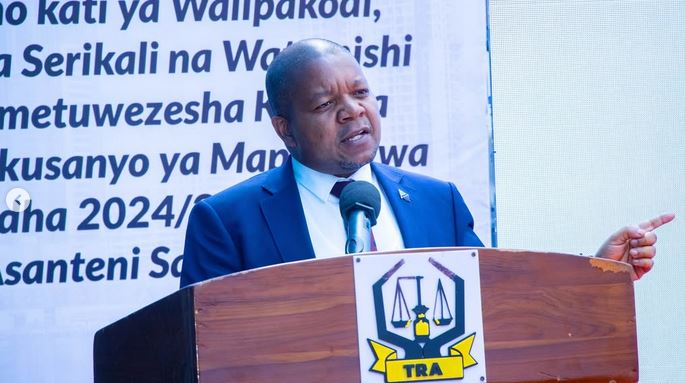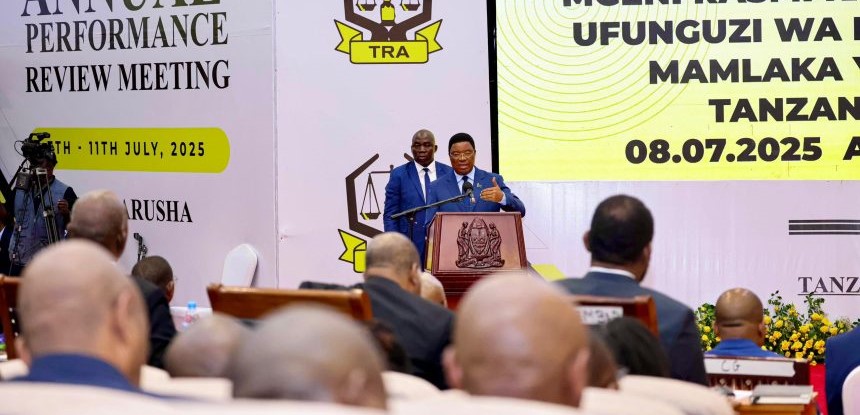Dar es Salaam. The Tanzania Revenue Authority’s (TRA) record-breaking revenue collection in the 2024/25 fiscal year signals a structural shift in fiscal resilience, strategic revenue mobilisation, and state capacity to fund national development without over-reliance on external borrowing.
TRA announced on July 1 that it has collected Sh32.26 trillion against a target of Sh31.05 trillion in the outgoing fiscal year.
“For the first time, we have exceeded our revenue target in every single month of the financial year. This is not only historic but sets a new benchmark for future performance,” said Mr Mwenda at a ceremony in Dar es Salaam to honour taxpayers.
His emphasis on voluntary compliance, transparency, and public trust reflects a departure from coercive enforcement towards a more inclusive and consultative tax regime.
He reiterated that, “President Samia Suluhu Hassan’s vision has been clear: engage taxpayers, don’t intimidate them.”
Surpassing the target by 103.9 percent, and registering a 16.7 percent year-on-year growth from Sh27.64 trillion in the 2023/24 fiscal year the achievement indicates growing efficiency in revenue administration and an expanding tax base.
The average monthly collection rose to Sh2.69 trillion, while December 2024 alone saw a peak of Sh3.58 trillion reflecting not only economic dynamism but also improved compliance facilitated by modern systems such as TANCIS and IDRAS, extended working hours, and taxpayer engagement.
Macro-economic perspective
From a macroeconomic perspective, this performance directly enhances Tanzania’s fiscal space.
By exceeding targets, the government is better placed to finance budgeted expenditures, particularly infrastructure-heavy flagship projects under the Third Five-Year Development Plan (FYDP III).
It reduces the need for costly debt and buffers the budget against revenue shortfalls, which have historically strained public finances.
This achievement is also timely. The 2025/26 national budget outlines ambitious public investment plans in energy, transport, education and health sectors.
A robust domestic revenue stream not only ensures continuity of these initiatives but also improves execution rates—an area often hampered by funding gaps.
Pressure on TRA
Yet, this success places considerable pressure on TRA. The new collection target of Sh36.07 trillion for 2025/26 raises the bar significantly.
Meeting it will require sustaining economic growth, tightening enforcement against evasion, and continuing to improve audit practices.
Moreover, the recruitment of nearly 1,900 new staff could translate into greater operational capacity and integrity.
Nonetheless, challenges persist. Tanzania’s tax-to-GDP ratio remains below regional averages, suggesting further room to broaden the revenue base.
The dominance of income and value-added taxes—accounting for around 64 percent of collections since 1999—underscores the need for more diversified sources and effective taxation of the informal economy.
Moreover, high collection targets must not lead to regressive tax practices that burden low-income earners or stifle business growth.
The Tax Reform Commission’s ongoing consultations with stakeholders will be crucial in ensuring that future revenue policies are inclusive, growth-friendly, and aligned with national development objectives.







